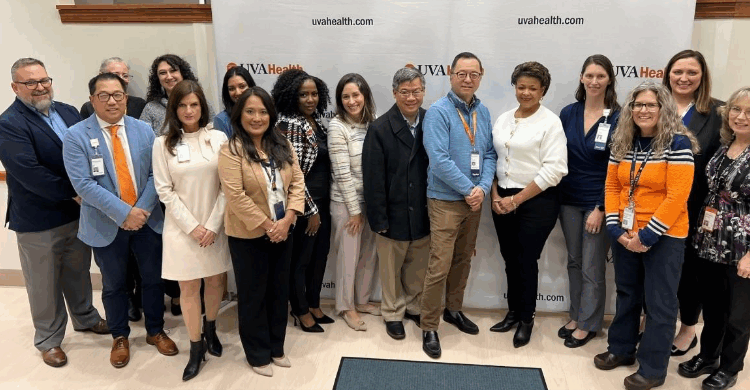
Insomnia affects older adults more than any other group, but many go without treatment. An online sleep intervention developed at the University of Virginia School of Medicine can help change that.
An online insomnia treatment developed at the School of Medicine has been shown to greatly benefit older adults struggling to sleep. The findings suggest the online program could help many older people who do not have access to in-person treatment because of location or cost.
The SHUTi OASIS intervention (Sleep Healthy Using the Internet for Older Adults Suffering with Insomnia and Sleeplessness) was put to the test in older adults in a clinical trial that enrolled more than 300 participants. A year after using SHUTi, two to three times more study participants showed meaningful sleep improvements than did study participants who received standard patient education online.
“This is the first digital health program for insomnia specifically for adults over age 55. In our trial, almost a third of participants were 70 years old or older,” said UVA’s Lee Ritterband, PhD, the creator of SHUTi and the director of UVA Health’s Center for Behavioral Health & Technology. “Not only did we find that this works, but we found that older adults were able to do this with very little, if any, additional help.”
SHUTi for Insomnia
Insomnia plagues up to 30% of older adults, more than any other age group. For some, the struggle to sleep lasts for years or even decades. This can be accompanied by depression and other health issues, such as increased risk for falls.
Cognitive behavioral therapy can help people overcome insomnia by retraining them to change the thoughts and behaviors that contribute to sleeplessness. But for many people, this treatment is out of reach. Rural residents, for example, may not have access to behavioral sleep specialists without traveling great distances. And some people may find the cost of treatment unaffordable.
That prompted Ritterband and colleagues to make cognitive behavioral therapy for insomnia more accessible by developing a fully automated digital health intervention available online. First, the team built SHUTi, a program for adults which has proved successful in several large trials. This newest version, SHUTi OASIS, was designed for older adults. “We felt great about SHUTi, but we knew adaptations would be needed for older adults. Seeing the results for older adults and how readily the participants were able to use the program has been incredibly satisfying. It feels like we can really contribute to overcoming the public health burden of insomnia,” Ritterband said.
The researchers enrolled 311 participants, ages 55 to 95, in a clinical trial and randomized them to receive either SHUTi OASIS (either just the program or with additional support) or standard patient education materials online.
The results were clear: SHUTi OASIS significantly outperformed the standard materials at the end of the trial, six months later and again a year after the trial ended. This was measured both by participants’ descriptions of their ability to sleep and by clinical indicators of insomnia and remission.
SHUTi also outperformed the patient-education materials on outcomes such as sleep quality and how often participants woke during the night. Overall, the researchers say, the trial offers “compelling evidence” that online cognitive behavioral therapy led to a much better night’s rest for most users.
“There is a critical need for behavioral interventions that are easily accessible and highly scalable. And, as our population ages, we must have treatments that work for older adults,” Ritterband said. “Given how many people experience insomnia, particularly as they get older, SHUTi OASIS and programs like it are going to be increasingly important for addressing widespread sleep difficulties in an efficient and cost-effective way.”
Findings Published
The researchers have published their findings in the scientific journal npj Digital Medicine. The article is open access, meaning it is free to read. The research team consisted of Ritterband, Kelly M. Shaffer, Frances P. Thorndike, Philip I. Chow, Linda Gonder-Frederick, Karen S. Ingersoll, Wendy F. Cohn, Christina Frederick, Kirsten MacDonnell, Jillian V. Glazer, Meghan K. Mattos, Michelle M. Hilgart, Mark S. Quigg, Mudhasir Bashir and Charles M. Morin.
The research was supported by the National Institutes of Health’s National Institute of Aging, grant R01AG047885.
To keep up with the latest medical research news from UVA, subscribe to the Making of Medicine blog.



